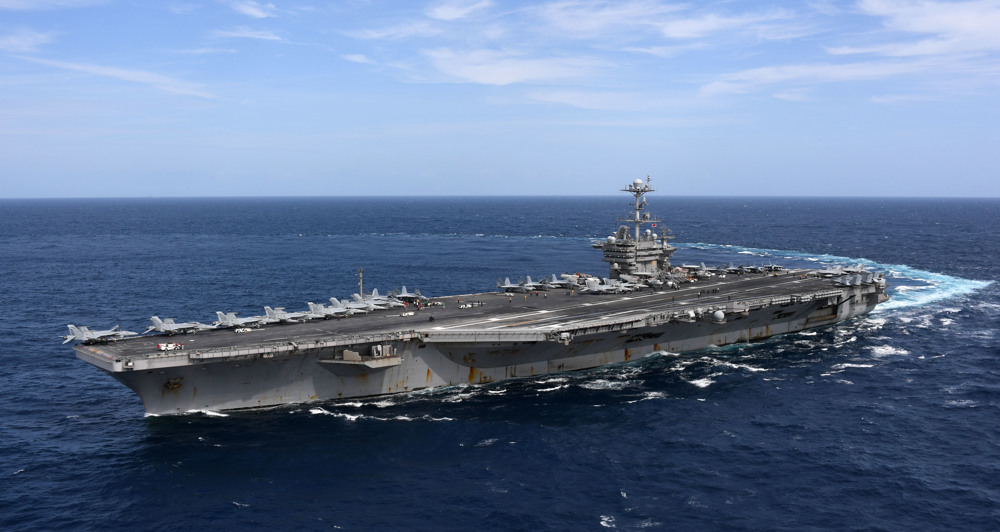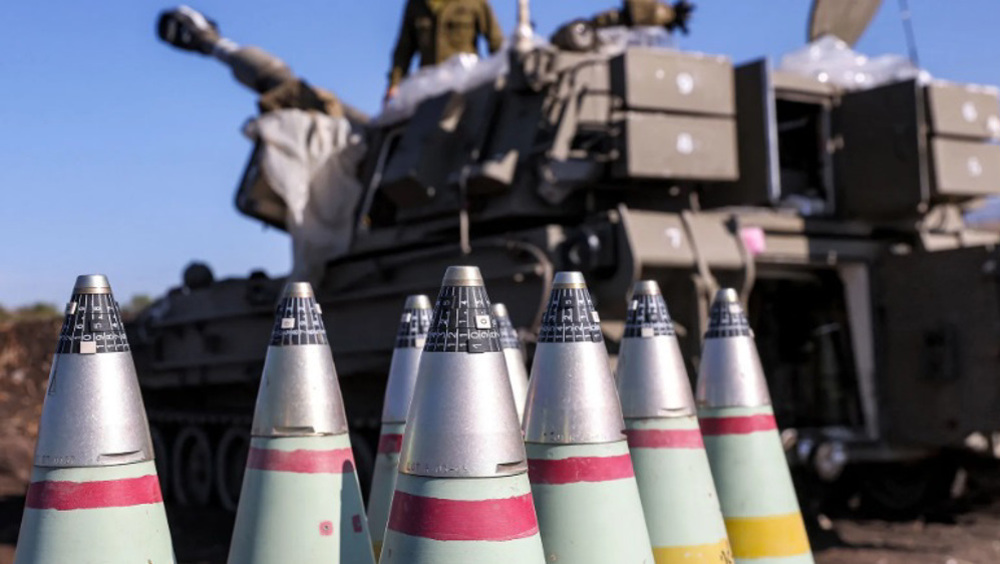'US strike carrier group enters South China Sea'
The United States Navy has dispatched a small strike carrier fleet to the disputed waters of the South China Sea, media reports say.
The carrier John C. Stennis, two destroyers, two cruisers and the 7th Fleet flagship have sailed into the disputed waters in recent days, according to Navy Times quoting US military officials.
Stennis is joined in the region by the cruisers, Antietam and Mobile Bay, and the destroyers Chung-Hoon and Stockdale. The command ship Blue Ridge, the floating headquarters of the Japan-based 7th Fleet, is also in the area, en route to a port visit in the Philippines. Stennis deployed from Washington State on January 15, the report added.
The news comes amid tensions in the area following American Navy’s so-called freedom of navigation operations in an area contested by regional countries.
Washington has already sparked anger in Beijing by such naval patrols which China deems as incursions and acts of provocation.
The US accuses China of militarizing the South China Sea after reports that the Chinese deployed an advanced surface-to-air missile battery to the Paracel Islands in the region last month.
China has dismissed such claims, saying the Stennis's patrol provides evidence of further US attempts for flare-up of military tensions.
“The accusation can lead to a miscalculation of the situation,” said Fu Ying, a spokeswoman for China's National People's Congress. “If you take a look at the matter closely, it’s the US sending the most advanced aircraft and military vessels to the South China Sea.”
Now Joachim Hagopian, former US Army officer, believes, “In its effort to emerge as a regional power in the Pacific Asian part of the world, and of course unipolar power, hungry United States of America is set on maintaining its global hegemony all over the world. And therefore it’s brining in its aircraft carrier the John Stennis along with a couple of destroyers and cruisers just to ramp up the tensions in the area.”
Hagopian told Press TV on Friday that “neither China or Russia [is] interested in having unipolar power around the world, it’s only America that’s gotten so used to it since the breakup of the Soviet Union in the early 90s as the unipolar sole power of the world and it’s not ready to share power.”
The South China Sea has become a source of tension between China, the US, and some regional countries who are seeking control of trade routes and mineral deposits.
The disputed islands are claimed by countries such as Vietnam, Taiwan, the Philippines, Malaysia, and Brunei, which all have overlapping claims with China over the territories in the South China Sea, including the Paracels, Spratly Islands, Pratas Islands and Scarborough Shoal.
Washington and China’s rivals have been accusing Beijing of attempting to take advantage of the situation and gradually assert control in the South China Sea.
Beijing, however, rejects the allegations and accuses Washington of meddling in the regional issues and deliberately stirring up tensions in the South China Sea.

Senior US delegation in Syria for talks with HTS ‘terrorists’

US pushes new strike group into region after aircraft carrier flees Yemen’s firepower

US disregards Spain’s arms embargo on shipments destined for Israel
Ukraine to cede territory despite US support: Report
US 'bolstered' armed groups to oust Assad in Syria: Report
VIDEO | Social media activists detained in Beirut
VIDEO | Yemenis say ready to confront US-Israeli aggression, express support for Palestinians
‘Fridays of Rage’: Iranians rally against Israeli atrocities, silence of supporters
Iran dismisses UK, Australia’s ‘baseless’ claims, urges end to interventions in West Asia
VIDEO | Resistance never stops
VIDEO | Press TV's news headlines







 This makes it easy to access the Press TV website
This makes it easy to access the Press TV website